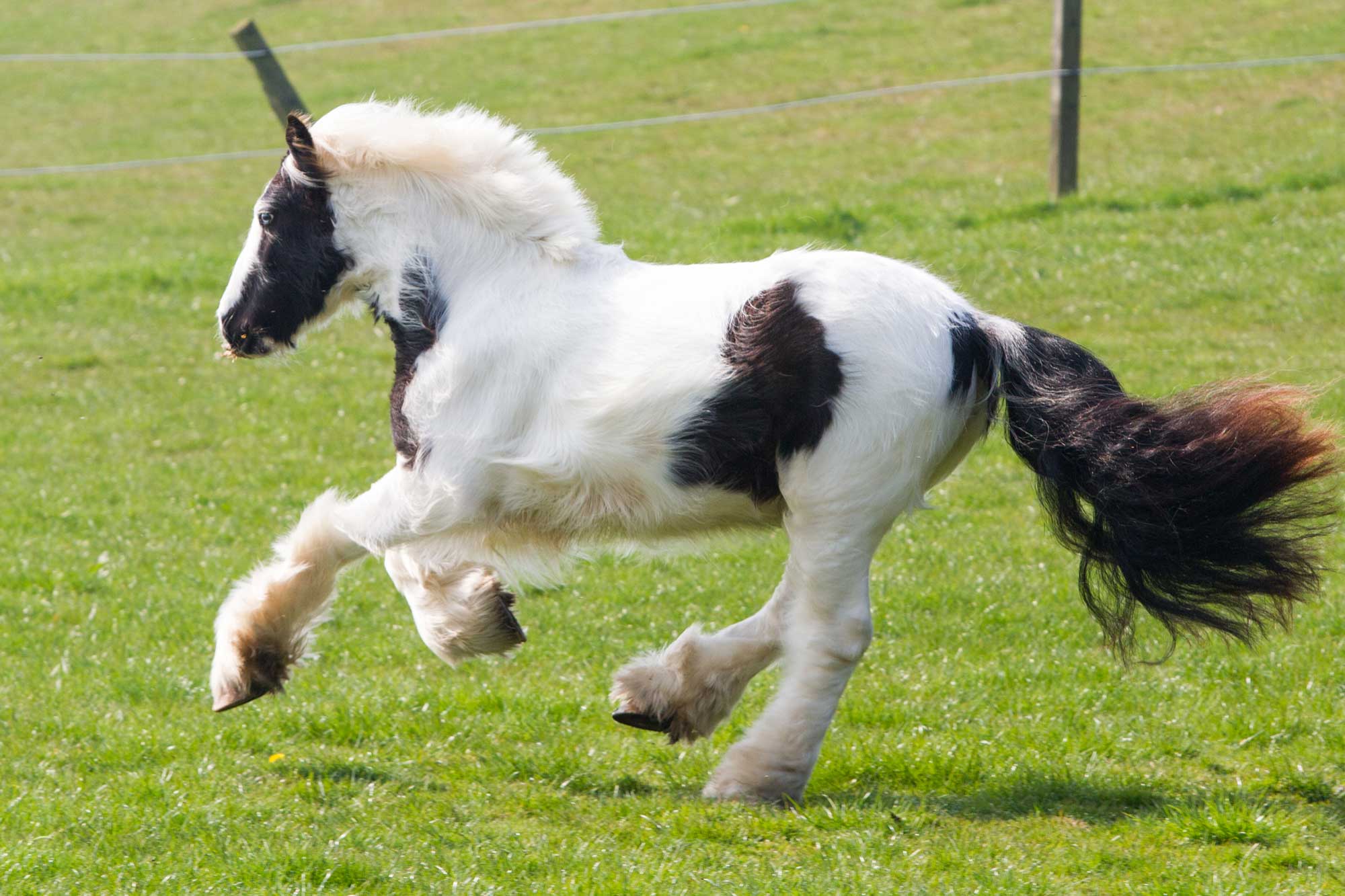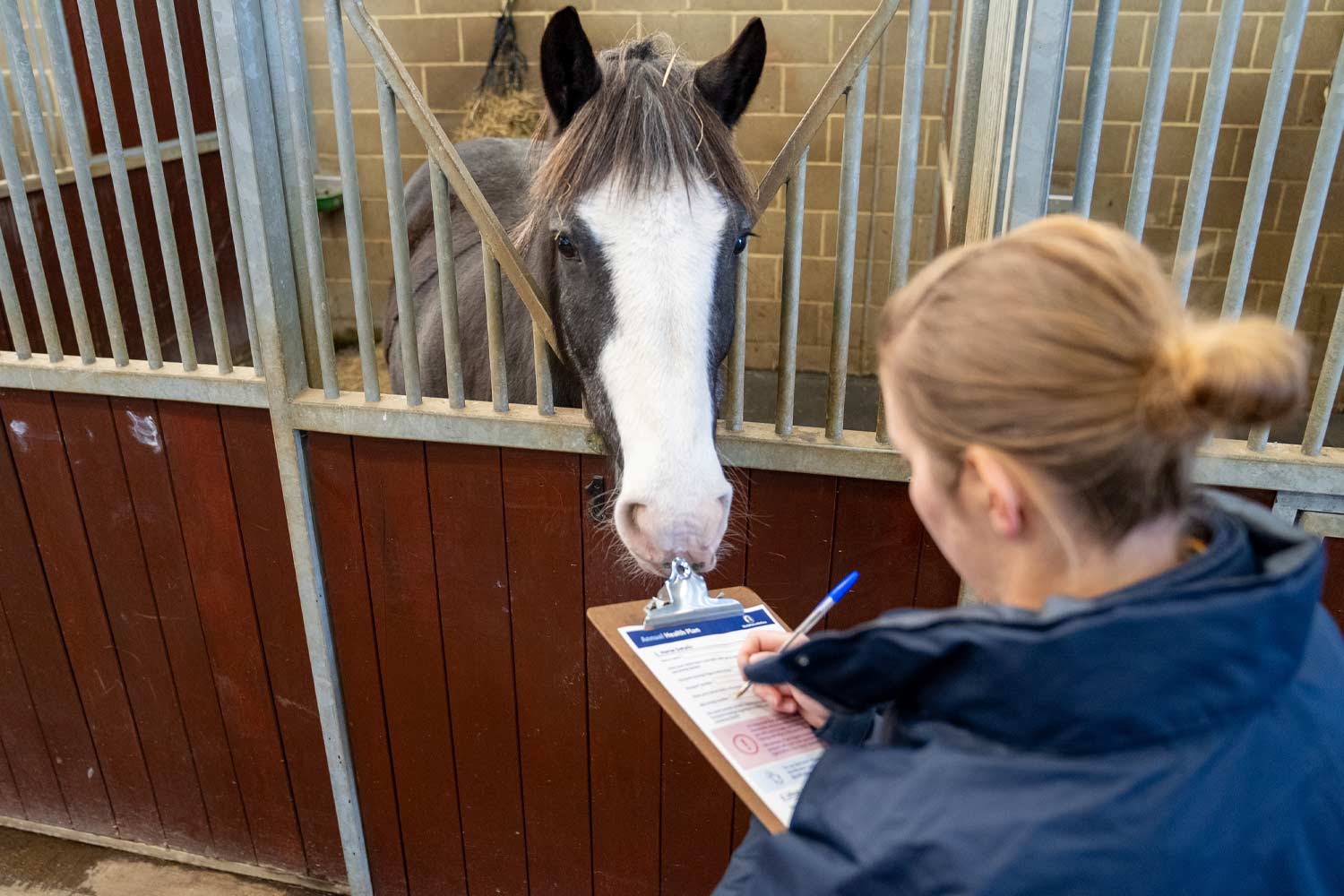Equine grass sickness (EGS) is a debilitating and often fatal disease which commonly presents as impaired activity of the gut, caused by nervous system damage, which prevents food from travelling through the digestive system properly.
Cases are common in northern European countries, particularly Great Britain. The disease occurs almost exclusively in horses with access to grass, but even though the condition was first identified around 1909, the true cause of EGS remains unknown.
The disease can present as acute (sudden onset), subacute (milder clinical signs) and chronic (slow onset).
Acute and subacute clinical signs include, but are not limited to:
- Absence of gut sounds
- Increased heart rate
- Gastric reflux (food out of nostrils)
- Colic
- Difficulty swallowing
Clinical signs in chronic cases can include:
- Rapid otherwise unexplained weight loss
- Tucked up abdomen
- Drooping eyelids
- Muscle tremors.
Contact your vet immediately if you suspect your horse is displaying signs of grass sickness.
Fast Facts guide to Equine grass sickness

This Fast Facts guide includes:
- Clinical signs of the different types of grass sickness
- Treatment of grass sickness
- Risk factors and prevention strategies
Popular advice in Health

Mites: how to treat them in horses
Find out how our experienced teams tackle this itchy problem in affected horses and ponies.
Other advice categories
All webinar categories:
Call our Advice Line
+44 (0)1953 497 238Not found the advice you were looking for? Our friendly team of horse care experts offer free practical advice. What can we help you with today? Our advice line is available 8.30am-5:00pm, or you can email education@worldhorsewelfare.org.



